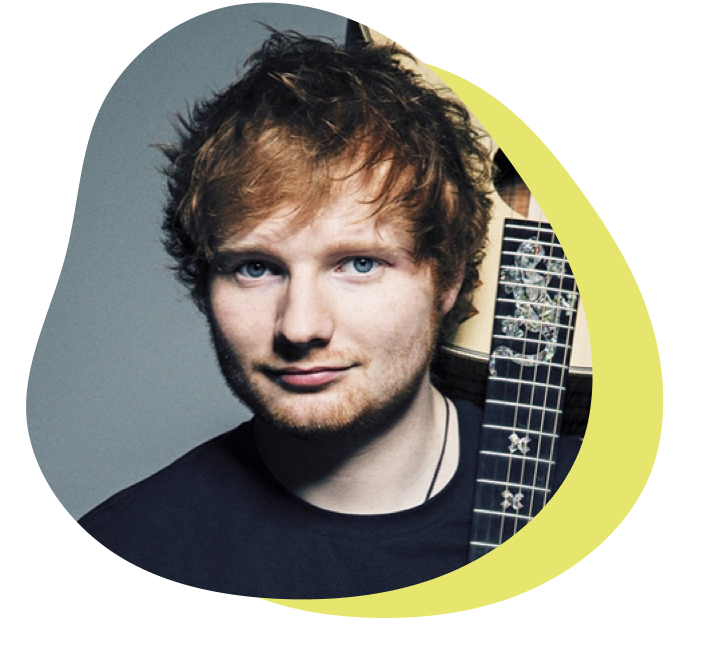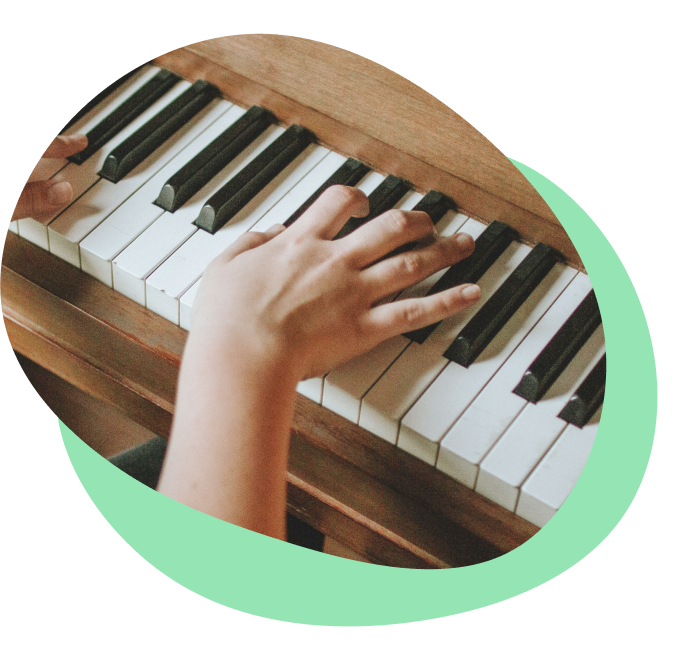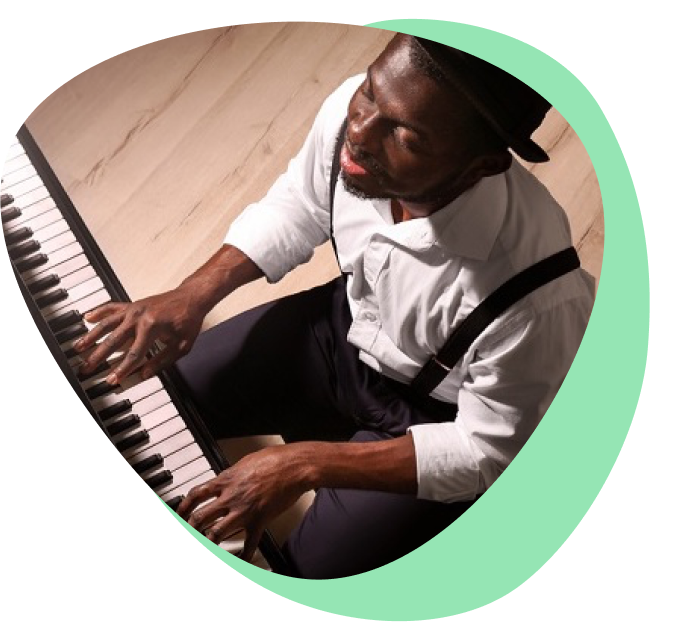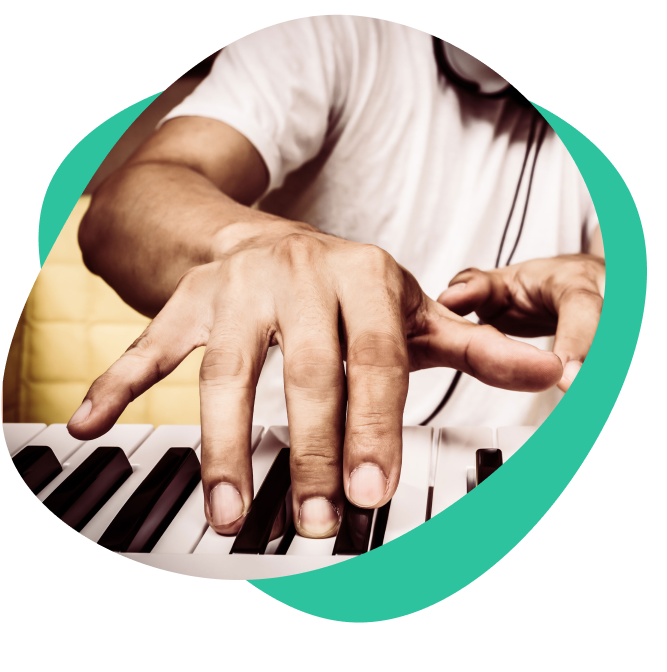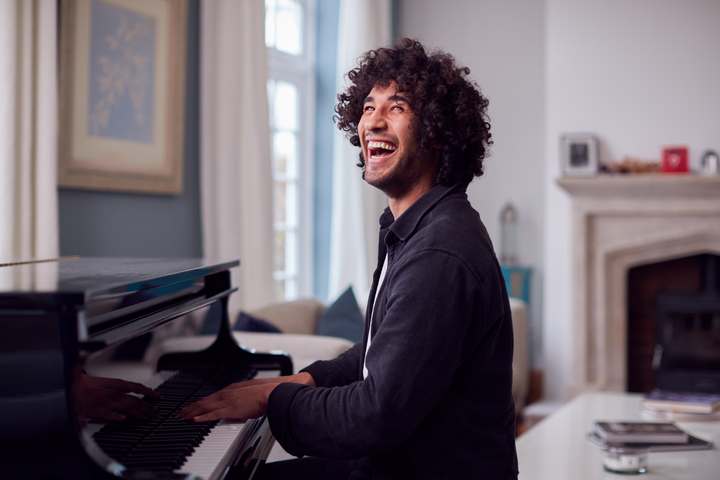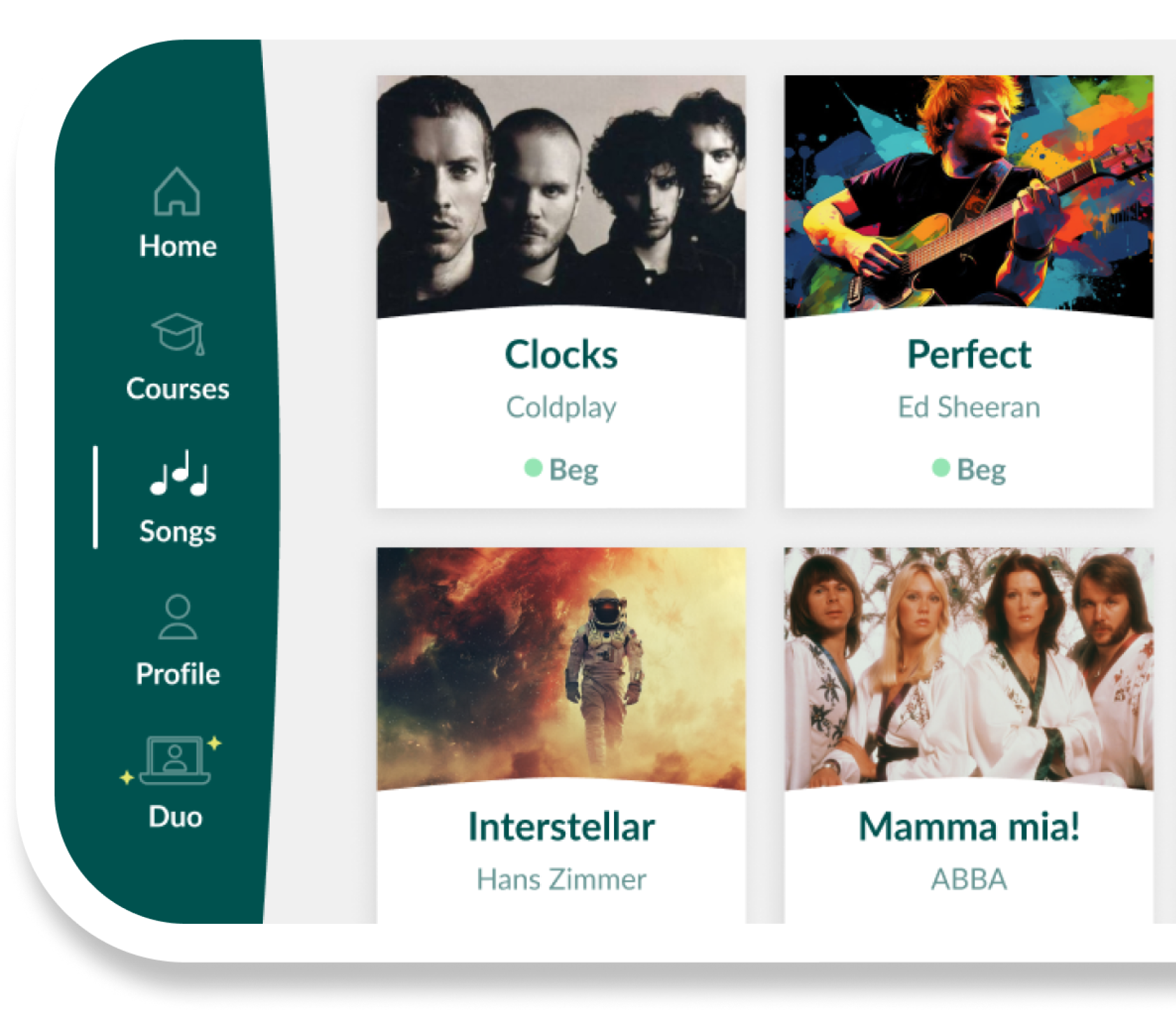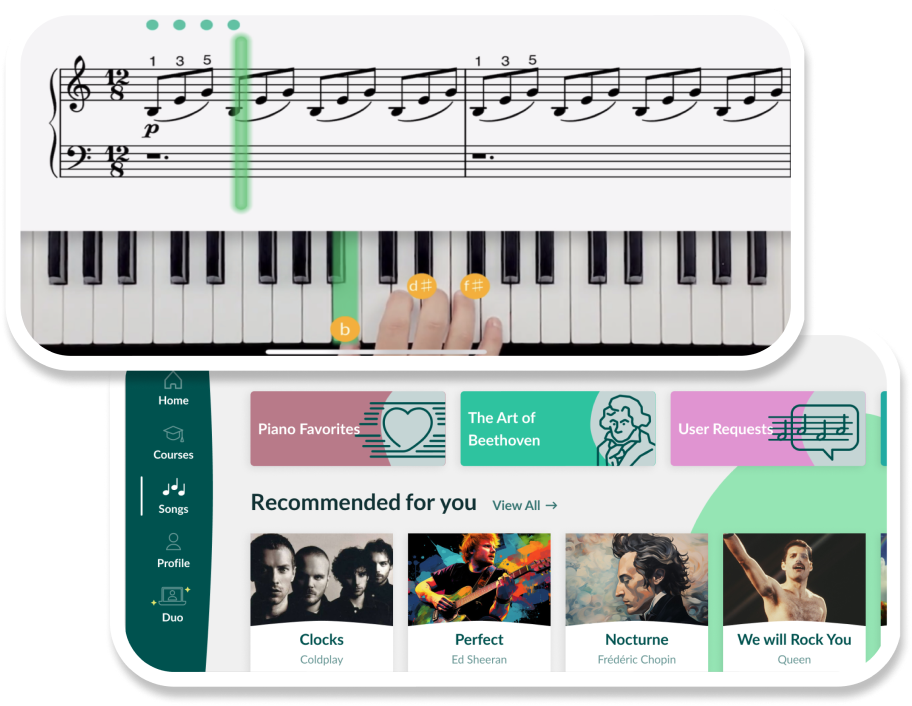The myth of natural talent leads many would-be musicians astray. It is true, there certainly are some people who are naturally drawn to music, as there are people who are naturally drawn to art, or math, or science. Of course there are people who have larger hands or better ears, just as there are people who have better eyes or stronger legs.
But too often, the legend of the prodigy musician serves as a deterrent to beginners. This does not need to be the case. Do not let the myths surrounding natural talent block you from satisfying your creative expression on the piano.
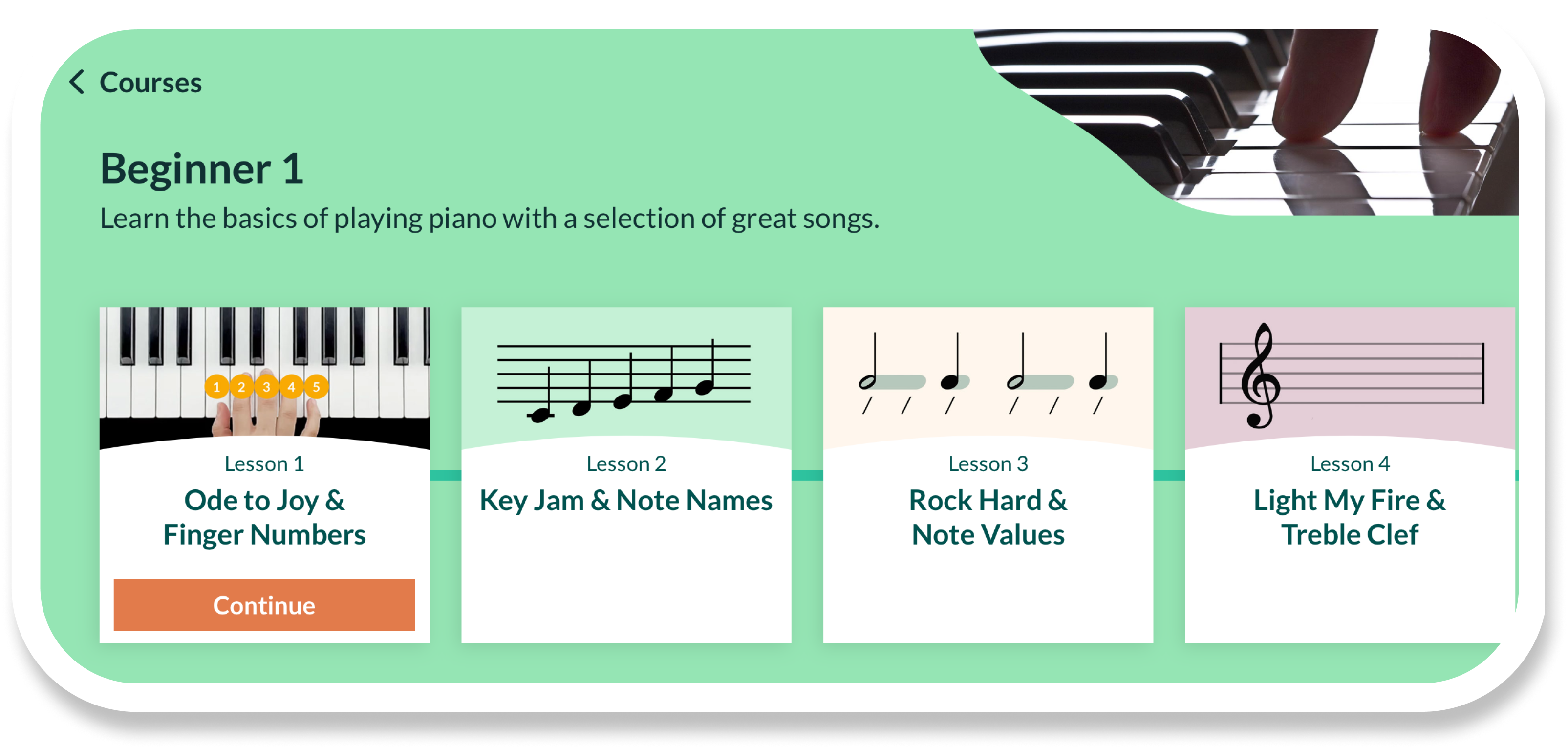
Musical talent
Musical talent is important. But, musical talent is extremely difficult to quantify. Does musical talent mean that a student can sit down at the piano and play beautiful music on their very first try? Perhaps. However, maybe that experience is more a reflection of the psychology of the student.
That particular beginning student is not afraid of making a mistake. A student who is afraid of sounding bad or making a mistake might allow their mindset to interfere with their performance, and consequently come to the conclusion that they lack natural talent.
On the other hand, the seemingly talented beginner might not put in the required time and energy into their practice, while the student who was at first afraid of making a mistake might practice diligently. After a short period of time, the student who has practiced more will undoubtedly sound better than the student who neglected their piano practice time. Consequently, when the practiced student performs, the audience will now believe that they are that talented student!
“You practice and you get better. It’s very simple.”
Philip Glass
How to have talent
Is talent a natural inclination towards a particular subject? Is talent an innate capacity that cannot be taught, only discovered by the fortunate? Or is talent the perception of natural skill that is only gained after consistent and disciplined practice?
While the answer will most likely be debated until the end of time, for your work as a beginning piano student, you should take the mindset that talent is at first found through a natural inclination and later honed and developed through hours of diligent practice. If you are naturally drawn towards music, you have half the equation. Now, you put in the work to develop your talents. While there are some magic piano hacks you can learn to increase your skills, there are no shortcuts to becoming a skilled pianist. If you want to develop your talent, you must practice; there is no way around it.
“Practice isn’t the thing you do once you’re good. It’s the thing you do that make you good.”
Malcolm Gladwell
Everyone has to do it, that is part of what builds the community of musicians. Every serious musician knows what it is like to practice, practice, and practice and then hear a better musician perform and feel some combination of admiration, self-doubt, or inspiration to work even harder.
That feeling of inspiration and determination is what builds your talent and allows you to develop as a musician. If you didn’t feel any drive to better your skills, what would be the point? You would have no talent!
Why talent is important, but not so important
Talent is important, but it is not the end of the story by any means. What is truly important is how you exercise and develop talent. At some level, everybody has the talent for music; it is an innate human trait. Everybody can sing, everybody has a beating heart and therefore understands rhythm, everybody can clap or dance etc. However, there are certain perceptions that drive the myth of talent that deter many people from exploring their own musical talents.
You may not become a pianist like Mozart or a vocalist like Adele or even a songwriter like Bill Withers or Leonard Cohen. But, do not let the legends surrounding these musicians block you from exploring your own talents. Many of these musicians that started late in their lives and still found great success in their careers.
Certainly they all faced periods of self-doubt and questioned faith in their skills and talent. But, if they let those doubts overcome their minds, then the world would not have experienced the beauty of their gifts! So do not let your mindset stop you from sharing your talents with the world, even if that just means your friends, family, or networks!
How to be a great pianist
You don’t need insane natural talent to be a great pianist. You don’t even need to believe natural talent exists to become a great pianist. All you need to to become a great pianist is to love the piano and practice diligently and consistently. That is all. There is no magic secret or mysterious force. All it takes is desire and time. You have to want it and then you have to put in the work to get it. Simple, right?
Take the long view and put yourself in perspective. Develop a healthy balance in music between practice time and life. Set realistic and achievable goals for yourself. Plan out a year or two. What would you like to sound like after 6 months of practice? What about after 2 years? Break your bigger dreams down into smaller, manageable pieces that you can accomplish in a day, week, or month. If you keep your ego in check and your goals in view, you can surely become a great pianist!
There is a great story about the famous pianist Arthur Rubenstein. He apparently hated his violin so much as a child, that he threw it on the ground and broke it. Of course, he later went on to become one of the greatest pianists in history!
What do we need to play the piano?
All you need to play the piano is some desire and motivation to play and explore, combined with an open mind and a willingness to make mistakes and learn from them. All beginners make mistakes, it is completely natural and should be expected. Mozart made mistakes. Beethoven made mistakes. Miles Davis and Thelonius Monk made mistakes. The important part is how you use your mistakes to further your talent. Do you build on your mistakes? Or do you allow your fear and embarrassment to control your mind?
“It is a mistake to think that the practice of my art has come easy to me.”
Mozart
Certainly, having some inspiring lessons is extremely beneficial. There are many sources for online piano lessons. Skoove offers a unique experience with over 400 lessons for many ability levels and styles. Learn contemporary songs as well as classics at your own pace and enjoy feedback in real time that helps you grow as a musician and expand your creativity.
You do not need to worry about being the most talented musician in the room. Instead, focus on your own skills, your own practice, and your own goals and creativity and you will unlock new and rewarding experiences at every note!
Author of this blog post

Eddie Bond is a multi-instrumentalist performer, composer, and music instructor currently based in Seattle, Washington USA. He has performed extensively in the US, Canada, Argentina, and China, released over 40 albums, and has over a decade experience working with music students of all ages and ability levels.



